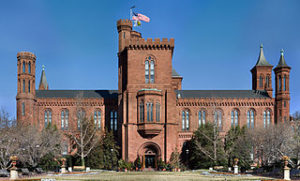
The Whitewater Common Council met in regular session on Tuesday night. A portion of that meeting (video, 2:35-16:58) involved the appointment of a council member to a vacant seat through April 2020. Two students from UW-Whitewater, Zachary Klotz and Matthew Schulgit, applied to fill that vacancy.
After remarks from each applicant, and a few questions from incumbent council members, the council voted unanimously to select Matthew Schulgit.
While a nearby newspaper wrote of this selection in a story headlined UW-Whitewater student picked to fill vacant city council seat held by brother, the story presents the selection without fundamental context.
Whitewater has a population of just under 15,000 (2018 figures), of which (using latest 2017 data) the overwhelming number of residents (67.7%) are under 25 (with 37.3% aged 20-24).
Whitewater is a college town in a small town.
(Over the years, some befuddled officials have contended that the town has too many rental units and too few single-family homes. No and no again: the town apart from the college is small, and a small town will have a limited number of single-family homes. Wanting to boost single-family homes to keep up with a large number of campus rentals is like thinking a chihuahua has to over-eat to make itself big like a nearby Great Dane.)
Although Whitewater has a campus in the middle of town, and one that’s large relative to the rest of the town, she has not seen the kind of uplift from a campus that serious observers typically expect.
James Fallows, for example, observes that being near a university – or a community college – helps a city succeed. See James Fallows on ‘Eleven Signs a City Will Succeed’ (Part 1) and (Part 2).
Whitewater’s picture is decidedly mixed, however: there are some people who have had success, and yet we remain a low-income community with high levels of family & child poverty. (See Reported Family Poverty in Whitewater Increased Over the Last Decade and A Candid Admission from the Whitewater CDA.)
Fallows most certainly does not define community success to include those stark economic circumstances. (There are no serious observers of progress who think community success requires no more than the self-promotion of a right-wing landlord or boosters and their small clique of dogsbodies.)
Whitewater’s selection of a student masks her inability – effectively – to make the most of being a college town. It’s good to have student representation (and good that the representative is talented); it’s better to have genuine integration between the town & campus.
That’s Whitewater’s context of selecting one council member who’s a student; anything else is oddly out-of-context.


